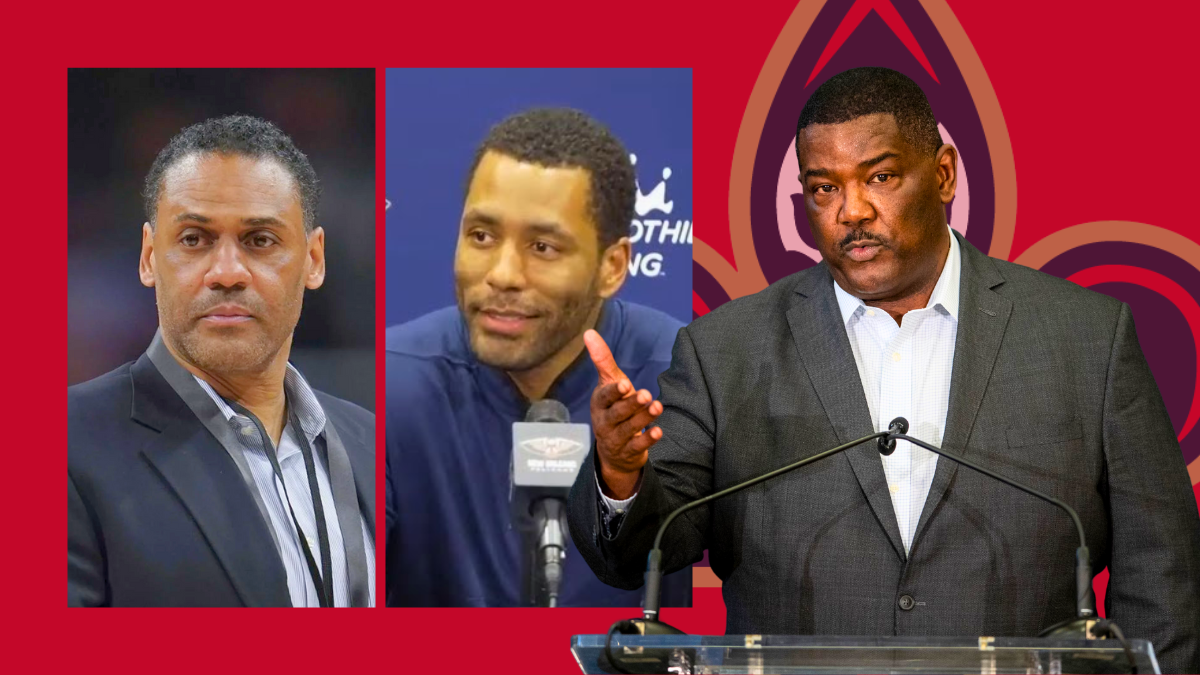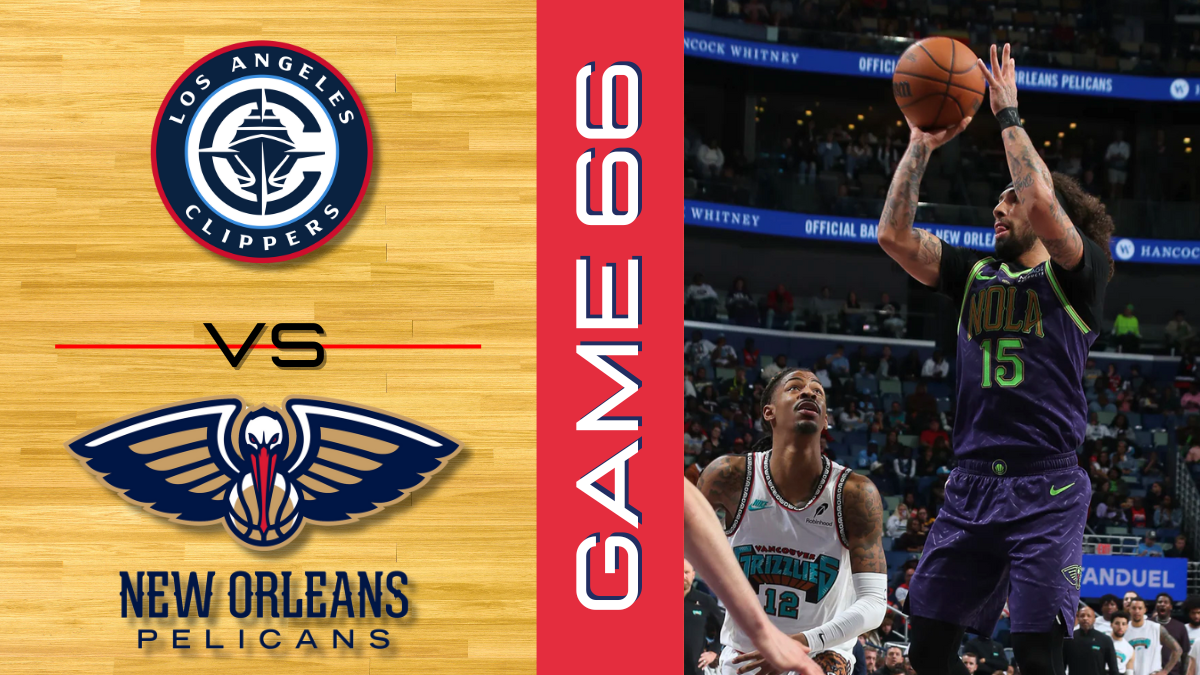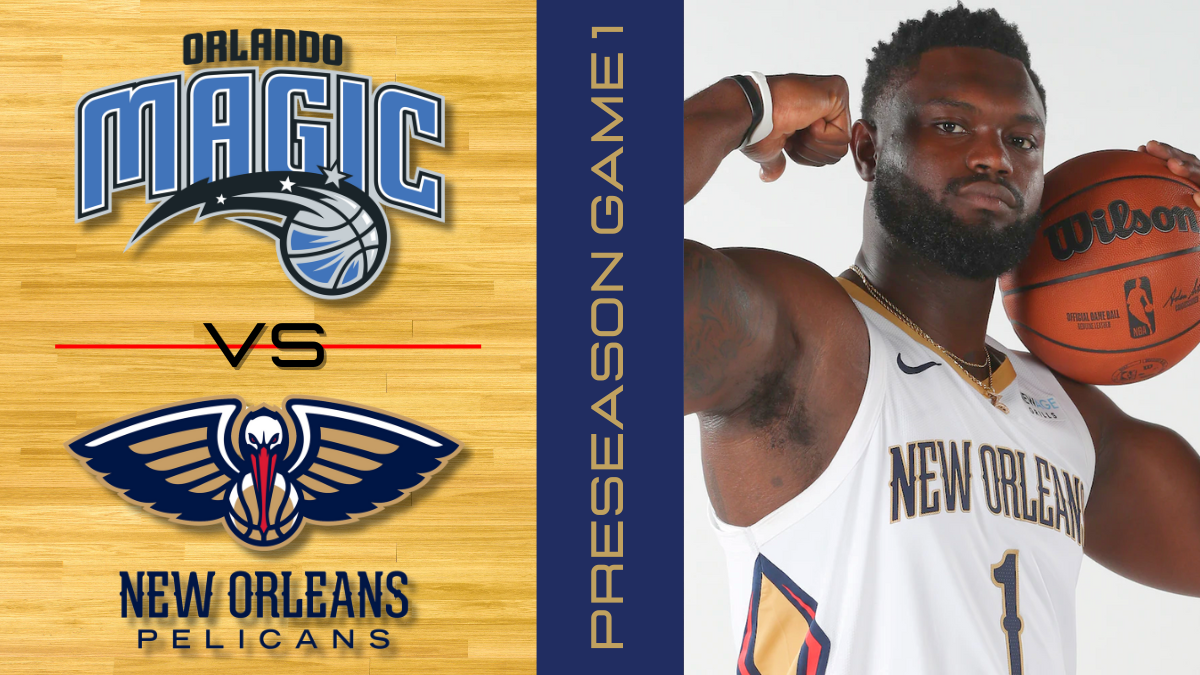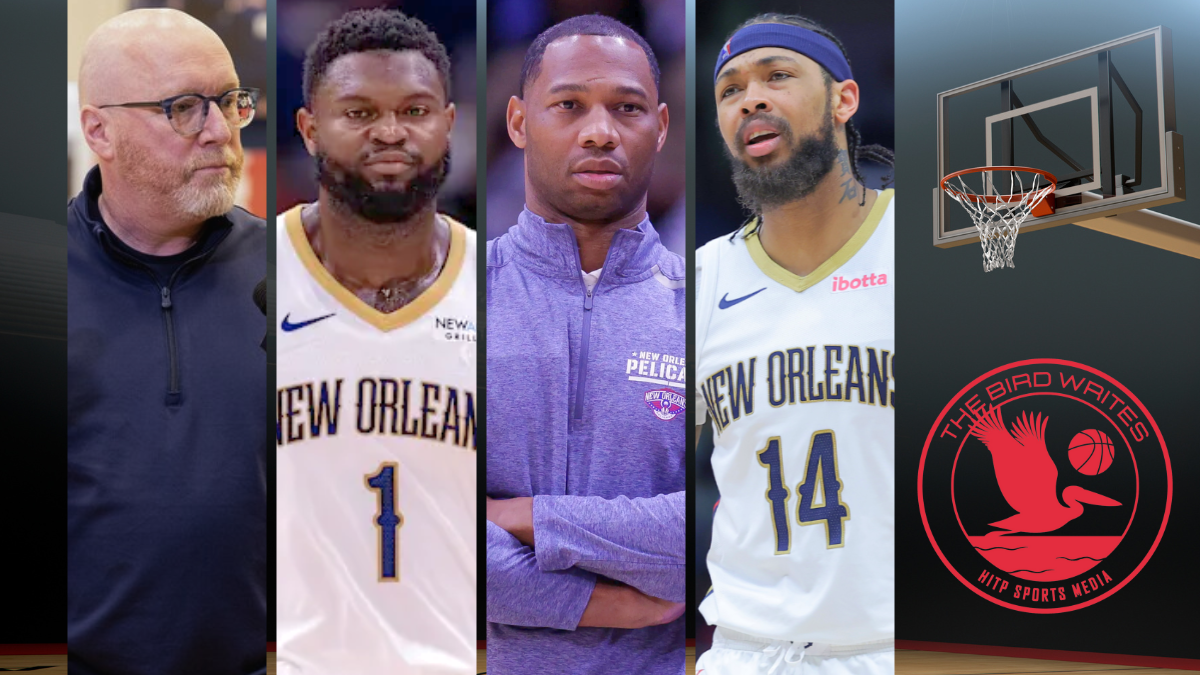In less than a week, the New Orleans Pelicans have undergone a sweeping transformation of their basketball operations hierarchy. Since the team’s season ended on April 13, the pace of change has been relentless, signaling a new direction, while raising new questions about what kind of organization the Pelicans are trying to become.
From Exit to Overhaul
The change began swiftly. On April 14, executive vice president of basketball operations, David Griffin, was relieved of his duties. The abrupt nature of the split led to immediate speculation that ownership already had a replacement in mind.
That speculation was confirmed when Joe Dumars and Gayle Benson reportedly entered contract negotiations less than 24 hours after Griffin’s dismissal. All indications suggested Dumars had been lined up for weeks—perhaps longer. Dumars took the reins on Monday, met with the media on Tuesday, and then really got to work.
Just days into his tenure, the Pelicans’ front office is already being reshaped in his image.
Troy Weaver Arrives, Familiar Faces Depart
By Wednesday, former Detroit Pistons general manager Troy Weaver was tabbed as Senior Vice President of Basketball Operations. His arrival reunited him with Dumars, under whom he worked for several years in Detroit. Thursday, the organization began parting ways with key holdovers from the previous regime.
According to NBA insider Marc Stein, executives Todd Quinter and Gar Forman, both longtime associates of Griffin won’t be retained.
Additionally, Swin Cash, a Hall of Fame player and the Pelicans’ vice president of basketball operations and team development, is not expected to return. Cash joined the franchise in 2019 and became one of the most visible women executives in the NBA, helping shape the team’s culture and public outreach and managing player development.
One person who won’t be leaving is general manager Bryson Graham. Graham has been with the Pelicans for more than a decade, working his way up from video coordinator to one of Griffin’s most trusted lieutenants.
Still, in just four days, Dumars has initiated a near-complete reset of the front office leadership.
Why the Moves Are Drawing Scrutiny
The hires of Dumars and Weaver have not been met with universal praise. Dumars, while a respected figure and a former Executive of the Year, has faced criticism for his handling of the Pistons during the later years of his tenure. After building a championship team in 2004, his leadership was later marked by questionable signings, mismanaged assets, and a failure to adapt to a modern NBA landscape. Critics fear the Pelicans may be embracing an outdated model.
Weaver, meanwhile, had a rocky run as GM in Detroit. While credited with bold drafting and an aggressive rebuild strategy, the Pistons struggled to compete on a nightly basis. Critics point to a lack of roster fit, overpaying role players, and Detroit’s continued struggles during his time as warning signs.
A widely circulated open letter from Detroit Bad Boys, SB Nation’s Pistons blog, offered a sobering assessment: “Best of luck. You’re going to need it.”
Experience vs. Fresh Vision
Despite the criticisms, both Dumars and Weaver bring significant experience and a track record of player development. Dumars built a championship team without a superstar—an increasingly rare feat—and earned widespread respect for the culture he established in Detroit.
Weaver was instrumental in the early scouting and drafting that helped build the Oklahoma City Thunder’s golden era with Kevin Durant, Russell Westbrook, and James Harden. And, his talent evaluation built the foundation for the success the Pistons are experiencing now.
Their defenders argue that their ability to identify talent and build competitive environments could benefit a Pelicans team with a talented but underperforming roster. And, with Zion Williamson’s prime years in play, the franchise is under pressure to find direction—fast.
A New Era, Ready or Not
Whether this front office transformation will spark a revival or lead to more turbulence remains to be seen. What’s clear is that ownership is not waiting for consensus to make decisions. The Pelicans are moving quickly, decisively, and without looking back.
With the draft, free agency, and potential roster retooling on the horizon, Dumars and Weaver now have a clear mandate—and a narrow window to prove that this version of leadership can succeed where the last one fell short.
READ MORE
- Joe Dumars Adds Former Pistons GM to Pelicans Front Office
- Joe Dumars and the Pelicans: A Sudden Shift That Raises More Questions Than Answers
- Pelicans Fire David Griffin: A New Era Begins in New Orleans
- Valiant Effort Not Enough As Pelicans Drop Season Finale
- Worst Season in Pelicans History to End Against NBA’s Best
- Pelicans Close Eastern Conference Slate Home Against Heat
- Eight Isn’t Enough as Pelicans Fall to Bucks, 136-111
- Pelicans Visit Milwaukee for Rematch with Playoff-Bound Bucks
- Pelicans’ Late Run Not Enough Against Nets
- Pelicans Visit Nets to Open Final Road Trip
- Short-Handed Showdown Ends in Pelicans Loss to Bucks
- Pelicans Limp Into Matchup With Lakers
- Pelicans Can’t Keep Up With Clippers in 114-98 Loss
- Pelicans Look to Spoil Clippers’ Playoff Push
- Pelicans Overcome Absences to Edge Hornets
- Shorthanded Pelicans Battle, But Fall to Warriors 111-95
- Pelicans Look to Play Spoiler Against Warriors
- Undermanned Pelicans Power Past Sixers, 112-99
- Pelicans Host 76ers in Battle of the Battered
- Pelicans Fall Short in Detroit Despite Big Nights from McCollum, Hawkins
- Pelicans Seeking Season Series Win Over Timberwolves
- Zion Dominates, Pelicans Bounce Back Big Against Timberwolves
- Shorthanded Pelicans Look to Snap Road Skid Against Timberwolves
- Pelicans Suffer Historic Loss to Pistons, 127-81
- Pelicans Look to Snap Skid as Pistons Visit
- Pelicans can’t close against Spurs, fall 119-115
- Zion Williamson Shines as Pelicans Continue Their Dominance Over Clippers





slot online so great at https://dutchauctionmasters.com